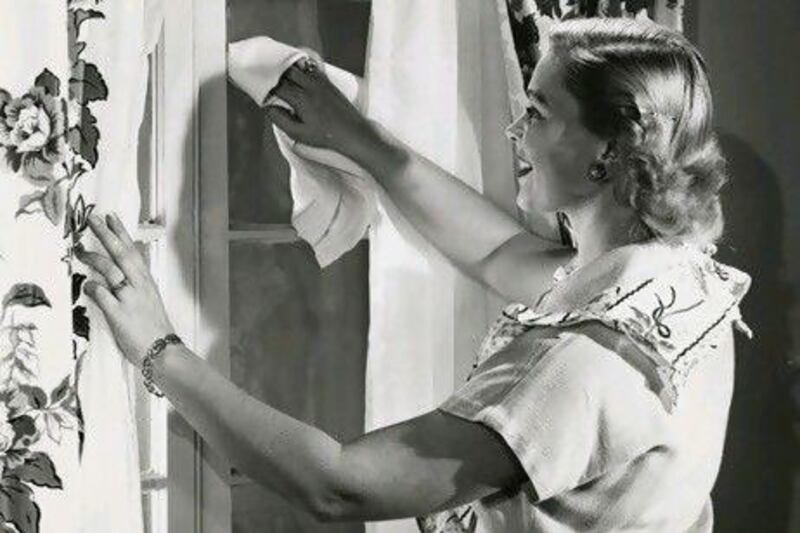Before the days of powerful vacuum cleaners and supermarket sprays, our grandmothers cleaned their homes in a much simpler way. Not only did they have to make do and mend when it came to household cleaning products, but sooty fires and cooking ranges also made homes dirtier than they are today.
As concerns about the potential damage that chemicals can do to our health and the environment grow, more people are ditching the powerful synthetics and looking to yesteryear for cleaning tips. It's time to stock up on vinegar, newspaper, hot water and plenty of elbow grease.
One cleaning expert inspired by the past is Lawrence Roullier White, the founder of Roullier White, a London-based boutique that sells, among other things, a range of natural cleaning products named after his late great grandmother, Mrs White.
"She spent all her teenage years in service as a housemaid, then worked as a cook," explains Lawrence. "She collected tips, recipes and remedies, notions and potions. When she died, her household cleaning tips - which she had scribbled down over the years and tucked inside notebooks - were inherited by my great aunt, then passed on to me."
Lawrence has tweaked a few of her recipes for cleaning products, but Mrs White's ideas and principles are still relevant today. "Her laundry soap was made with lard - meat fat," chuckles Lawrence. "Today, we make it using olive oil instead, but it's not much different and it works in the same way."
Mrs White's favourite product for most household cleaning tasks was vinegar. "She used to use it for everything," says Lawrence. "It's astringent, so cuts through grease, it's antibacterial, and it cleans windows without leaving any streaks behind, although it does leave a bit of a vinegary smell."
As well as being effective, simple, natural cleaning products have environmental (and therefore health) benefits, Lawrence says. "Lots of commercially produced cleaning products contain damaging chemicals. You can absorb them through your skin and breathe them in. Until about 10 years ago, natural cleaning products weren't that widely available. There weren't really viable natural alternatives, but now there are."
Inspired by the tradition of leaving bowls of chestnuts on windowsills to deter spiders, Roullier White sells a spider repellent spray called Leg It.
"Spiders 'smell' through their feet," Lawrence explains. "Our spray contains chestnut oil, which they hate. If you spritz your window frames and doors, they won't come near."
Another product that's inspired by Mrs White's notes is the Swatnot spray, which repels flies. "It's made with chrysanthemum oil," Lawrence says. "It works as well as any fly spray but doesn't contain chemical pesticides or toxic heavy metals as some off-the-shelf sprays do. It's handy for the home, and it's completely safe to use around animals and children."
Lawrence isn't alone in seeking cleaning inspiration from his granny. Brenda Evans has written a whole book inspired by the way her grandmother cleaned: Granny's Household Hints: Traditional Tips for a Clean, Green Home (published by Sphere, £4.49 from www.amazon.co.uk).
"Granny did not use proprietary cleaners laden with bleach and other products that claimed to work miracles," she writes. "Her cleaners were everyday products like vinegar, bicarbonate of soda and lemons."
To keep the bases of her irons free from starch build-up, Brenda's grandmother kept a cloth soaked in white vinegar to hand and wiped the iron after each round of ironing.
"Borax crops up again and again," Brenda says. "It's something your mother or grandmother would probably have kept permanently in the laundry room. It's made from a natural mineral, sodium borate, which was discovered over 4,000. It's non-toxic, safe to use, and was originally used to soften water and make white clothes brighter. It has many uses as it has both disinfecting and deodorising properties and is also great for preserving cut flowers."
Visit www.roullierwhite.com for Mrs White's remedies, or www.labourandwait.co.uk for traditional bristle brushes, brooms, natural air fresheners and real feather dusters





